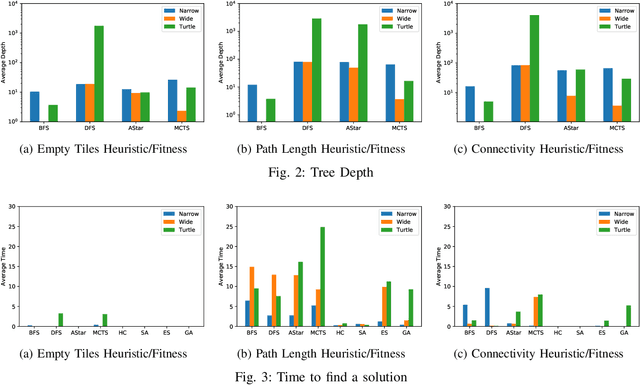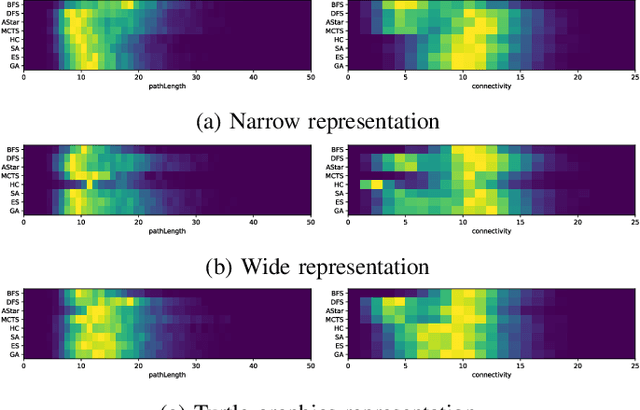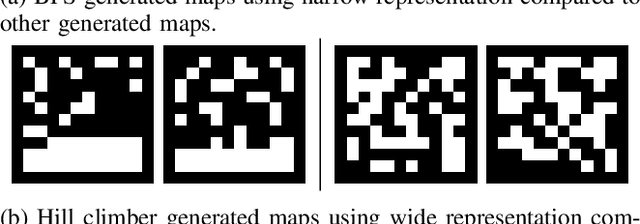Tree Search vs Optimization Approaches for Map Generation
Paper and Code
Mar 27, 2019



Search-based procedural content generation uses stochastic global optimization algorithms to search spaces of game content. However, it has been found that tree search can be competitive with evolution on certain optimization problems. We investigate the applicability of several tree search methods to map generation and compare them systematically with several optimization algorithms, including evolutionary algorithms. For purposes of comparison, we use a simplified map generation problem where only passable and impassable tiles exist, three different map representations, and a set of objectives that are representative of those commonly found in actual level generation problem. While the results suggest that evolutionary algorithms produce good maps faster, several tree search methods can perform very well given sufficient time, and there are interesting differences in the character of the generated maps depending on the algorithm chosen, even for the same representation and objective.
 Add to Chrome
Add to Chrome Add to Firefox
Add to Firefox Add to Edge
Add to Edge